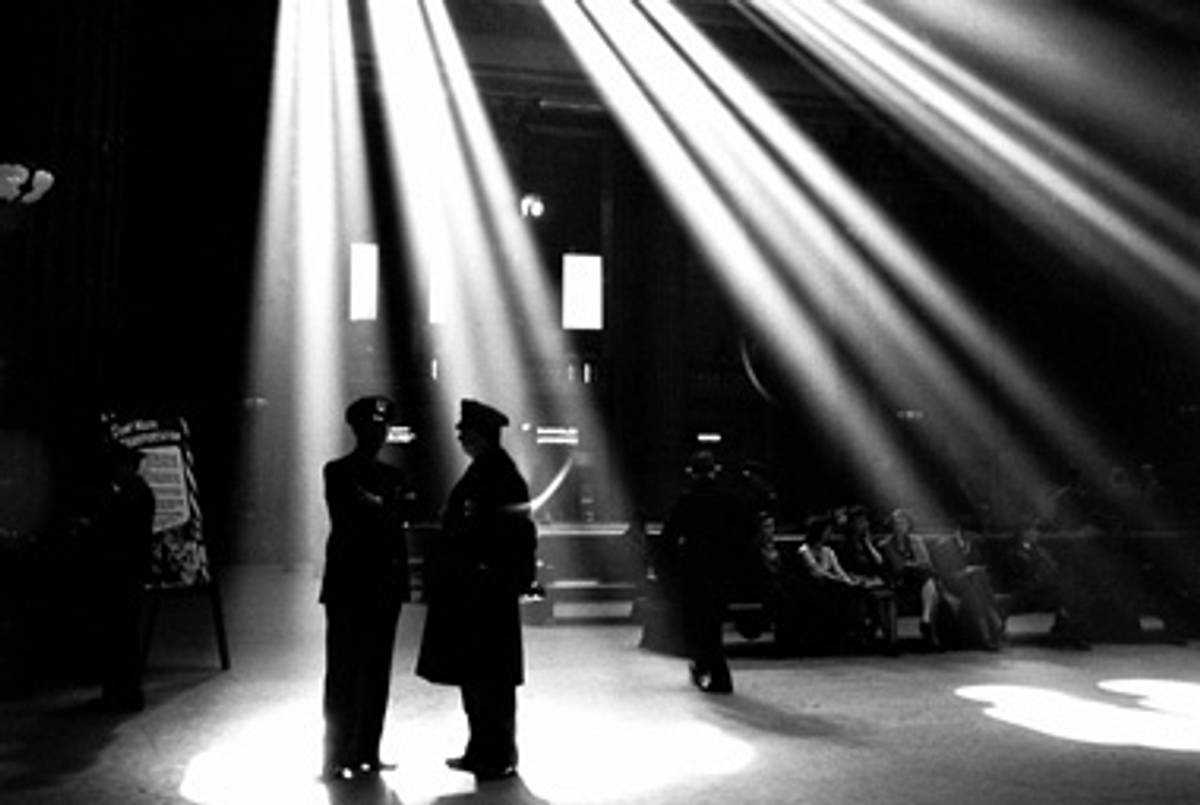Men of Mystery
One the eve of the release of his 11th book, spy novelist Alan Furst reflects on his sources of inspiration and his cerebral and wordly—if not always Jewish—protagonists

Alan Furst’s bestselling spy novels depict the secret allegiances and betrayals that animated interwar and wartime Europe, but what distinguishes his work from others who’ve toiled in the genre is the attention he pays to the flavor of everyday life. Amid the forged documents and concealed identities, he still manages to conjure things like the meal a well-to-do couple traveling through the Belgian countryside might have eaten in1941: radishes, salted beef tongue, “some kind of white, waxy cheese,” dried winter apples, and a loaf of bread.
In Furst’s latest, Spies of the Balkans, he introduces us to Constantine “Costa” Zannis, a high-level Salonika detective who, somewhat inadvertently, becomes one link in a chain of operatives shepherding Jews out of Germany. Vox Tablet’s Sara Ivry speaks to Furst, in his home in Sag Harbor, Long Island, about how, in 1986, a Django Reinhardt cassette led him to the time and place he’s written about ever since; about his upbringing on Manhattan’s Upper West Side; and about his attraction to unattached, intellectual heroes.
Your browser does not support the audio element.
- Vox TabletSo Long, FarewellAfter 11 years and 500 episodes, Vox Tablet signs off for good
- Vox TabletTanya’s StoryHow a young woman learned the painful lesson that there are times when trying to do what’s ‘right’ can go very, very wrong
- Vox TabletA New Kind of Prayer BookThe Conservative movement’s latest siddur goes way beyond traditional liturgy
- Vox TabletHey, Mister DJ: Put a (Diaspora-Blending, Genre-Bending) Record OnBooty-shaking new music from A-Wa, Sandaraa, and Schizophonia
- Vox TabletWhat’s Free Will Got To Do With It?Especially in election season, we love talking about the moral fiber (or lack thereof) of our candidates. But when it comes to ethics, no man—or woman—is an island.
- Vox TabletBuilders of a New JerusalemIn a new book, Adina Hoffman brings to life three architects who transformed the city in the days of the British Mandate
- Vox TabletBathe in the WatersA radio documentary asks: Is there a way for women to dunk ritually that doesn’t conflict with their feminism?
- Vox TabletBeyond DrakeA handful of personalities come to mind when we think of African-American Jews. Let’s change that.
- Vox TabletThe Saddlemaker, the Schindler, and the Miller of WlodowaGolems, messiahs, tradesmen, Nazis, and townspeople converge in the story collection ‘In the Land of Armadillos’
- Vox TabletA Year of FirstsAn audio portrait of Luzer Twersky, just after he quit his life as a Hasid, and long before he played one in films
- Vox TabletFor the Love of Suzie Louise: A Christmas StoryIn middle-century Skokie, a young Jewish boy searches for a stolen Jesus to comfort his bereft Christian girlfriend
- Vox TabletThe Most Haunted Leading ManIn ‘Son of Saul,’ actor Géza Röhrig defies our every expectation of a Holocaust movie hero
- Vox TabletGirlhood, InterruptedCynthia Kaplan Shamash fled Iraq 40-odd years ago, when she was just a kid. Her flight foreshadowed that of young refugees fleeing Syria now. Where did she land? Where will they?
- Vox TabletLet ‘Freedom’ Ring: A Flutist Gives Life to Musical Celebrations of LiberationsMimi Stillman’s new album features works inspired by upheaval in Europe and the Middle East
- Vox TabletPuzzle MasterFor years, scholars dismissed the Arabic on text fragments from Cairo’s genizah as unimportant scribbling. Then along came Marina Rustow, bona fide ‘genius.’
- Vox TabletMy Grandfather, the Secret PolicemanRita Gabis knew only that her mother’s Catholic family came from Lithuania after the Holocaust. Then she started asking hard questions.
- Vox TabletBeyond the PulpitWhat does a rabbi do in late August when he no longer needs to prep for High Holidays?
- Vox TabletAndré Aciman, Sarah Wildman, and Others Build a Summer Reading ListLooking for a good book to sink into at the beach in these waning dog days? Friends share what they’ve loved lately.